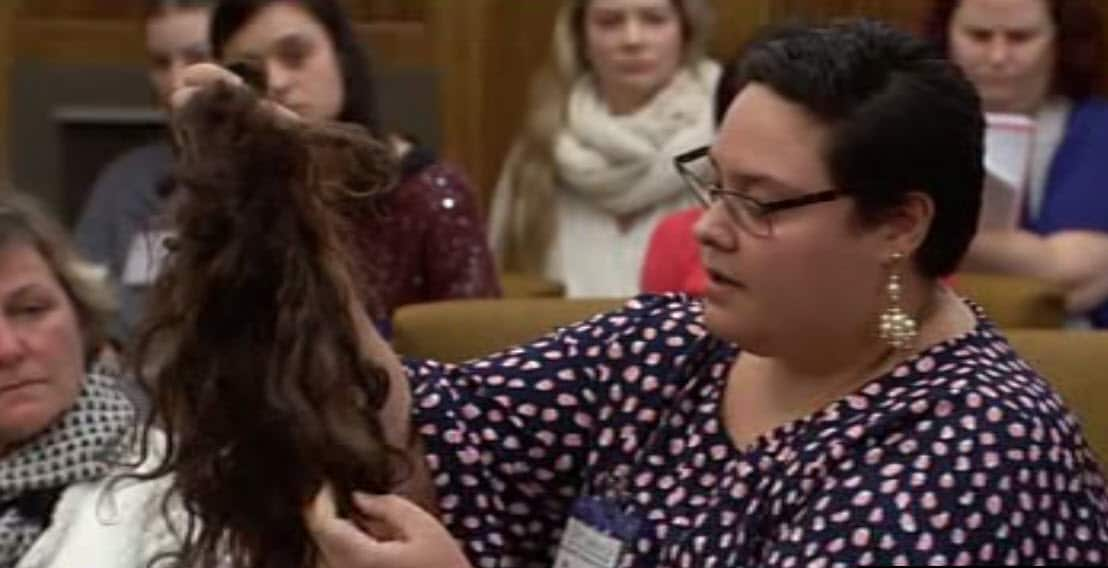The mother and sister of a Wiradjuri man who died in an Adelaide jail are desperate for answers.
Caroline Andersen and Latoya Rule have called for prison guards to wear body cameras after a violent altercation with guards led to the death of Wayne Morrison.
No jail guards have been suspended or disciplined while those investigations have been underway.
Ms Rule says her brother’s body was unrecognisable from bruising and swelling.
As a result of trauma she showed the South Australian parliamentary select committee on the Administration of SA's Prisons hair that she cut off as part of a grieving process.
25 years on after the Royal Commission into Aboriginal deaths in custody but lives are still being lost.
Caroline Andersen says it’s time for change.
"I want the system to be changed so that no other mother, brother, sister, uncle, family member, community has to go through this again," she said.
"It’s not only SA here, Wayne is also part Wiradjuri… Not only one state is involved in this, it is another state. The net has been thrown out and spread wide. We want to know what happened.”
There is still no indication of when a coronial inquest into Mr Morrison’s death, in September last year, will begin.
Opposition correctional services spokesman Stephan Knoll says a coronial inquest into Mr Morrison's death must be completed to give his family closure.
“His daughter is only 7 she is going to want to know what happened to her father,”
Almost a year later and Ms Andersen's questions are still unanswered.
“How did a 29-year-old father, brother, uncle, son – not receive bail over the weekend, when he was arrested, and be sent from the Elizabeth Police cells straight to high security prison in South Australia… how does that happen?” she asked.
“He was in custody for six days and then an 'incident' happens, and then he is taken to the royal Adelaide hospital and six hours later – we’re not even informed by any department. He was in a coma for six hours – put into ICU under life support and we weren’t informed. How does that happen?"
Mr Morrison has been remembered as a son, brother, fisherman, artist and a family man. His mum says the system has failed their family.
“His daughter is only 7 she is going to want to know what happened to her father,” Ms Anderson said.
The mother of five says she’s been forced to research the outcomes of the inquest 25 years ago into Aboriginal Deaths in Custody and nothing has changed.
“I have found that within south Australia – so many of the things that were supposed to be implemented weren't. Would he be alive today if the correct procedures and not the overcrowding of prisons – would he have been alive today if he wasn’t set to yatala prison?” Mr Morrison has no prior convictions and today the reason for his arrest was not discussed because his family believe the focus is on his death.
Mr Morrison has no prior convictions and today the reason for his arrest was not discussed because his family believe the focus is on his death.

Wayne Fella Morrison was sent from the Elizabeth Police cells straight to high security prison in South Australia Source: Supplied
“I want to know the truth of what happened to my son and I do want people to be held accountable," Ms Anderson said.
“I am angry because he was in their care. If someone is put into maximum security prison within any state – you would expect that you’re loved one is being put in their care. They’re still under the state’s care. Isn’t it their responsibility to take care of the prisoners?”
Ms Rule, a Wiradjuri Maori student and Mr Morrison's sister is currently researching Aboriginal deaths in custody and media portrayals.
“People don’t go into prison to come out dead," Ms Rule said.
His sister feels their family were treated terribly during the whole ordeal,
“Hospital staff turned my mother, who is his next of kin, away and was told 'Wayne was no longer at the hospital'.”
The family said when they say his body, 'Wayne didn’t look like himself anymore'.
"Open casket is usually culturally appropriate for Aboriginal people during 'sorry business', but because of the way Wayne looked we had to have a cremation."
Their mother begins to cry as Ms Rule revisits their final moments with Wayne and how the security guards treated the whole family like 'prisoners' and refused to allow them private time to say goodbye. In a bid to prove the trauma caused from this event, Ms Rule pulls out a bag with the remains of her hair.
In a bid to prove the trauma caused from this event, Ms Rule pulls out a bag with the remains of her hair.

Ms Rule shows hair that she cut off in a result of grief and trauma. Source: NITV News
"This is my hair that I cut off as part of a process of grieving. I want you to know that in terms of Aboriginal grieving processes they’re not just that we forget our family members and we put them in the ground and that’s it," she says.
"They have implications for all of us and the grieving continues and its very very real for us so I hope today that you understand where my family and I stand on these matters and that we’re not going to go away either."





